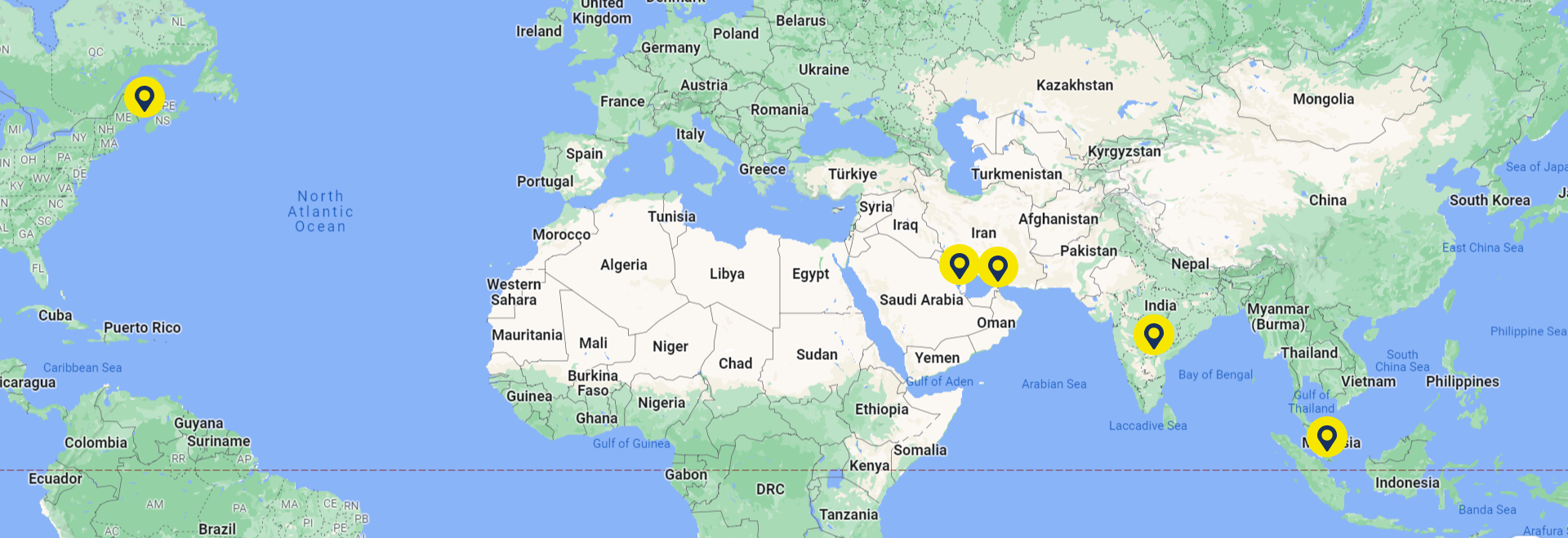Reimagining Consumer Data Privacy With Edge AI
We live in a time with unparalleledaccess to information. And while this access to information has unequivocally improved our lives, the genesis of big data occurred so quickly and has been so appealing that we sacrificed our privacy and control of our personal information for convenience without even realizing it.
Currently, sharing personal information is required to receive most services. But given the consequences of large data breaches and the increasing pressure from both consumers and regulators to ensure individual privacy and security, this model is clearly unsustainable and, for many, undesirable. There is an apparent need to better balance the productivity and convenience we all receive from sharing our information with maintaining our right to privacy, but doing so will likely require the advent and adoption of new technologies.
To function in the developed world, we are frequently required to disclose private information in exchange for a service, and for the most part, we seem to be comfortable with this trade. Most websites require cookies. Most apps allow us to log in with our Facebook profiles. Social media platforms allow us to communicate with friends and discover new products and ideas in exchange for ownership of our content and data. Banks require knowledge of our personal history in exchange for storage and transfer of funds.
A recent study by DMR Business Statistics indicated that in 2018, the average user had 80 applications installed on their phone, and many of these apps collect personal information in the background. For the most part, we accept these trades because the benefits of participating are so immense that, until recently, we ignored the unintended consequences. It’s a disconcerting realization for many that these trusted third parties can and do cross the line for personal data privacy.
In recent years, the frequency and severity of data breaches has increased and has resulted in a better informed and less tolerant populace. According to a 2018 study by GDMA, 74% of global consumers surveyed expressed concern over online privacy, and 83% expressed a desire to have more control over their personal information and its storage. Though these concerns can be perceived as problematic for companies that monetize consumer data, this changing sentiment creates a unique opportunity for businesses to alter their practices in order to be more in line with consumer values.
PROMOTED
Fortunately, due to changing consumer sentiment, it is now clearly in the long-term interest of companies to find new means of handling and protecting customer data, as doing so has the potential to create a more positive brand image.
In addition to the market incentives, regulators are providing a framework that will force companies to reconstruct their current models and means of gathering data. The European Union, for example, has enacted strict privacy rules known as the General Data Protection Regulation (GDPR) to help ensure consumer privacy. Regulations like GDPR are being explored nearly everywhere in the world, and at this point, it appears highly likely that these regulations will only increase in prevalence and rigor. The current model in which marketers and big data companies attain and monetize free access to private information will eventually come to an end.
Though both companies’ and consumers’ incentives are beginning to align as a result of consumer education and government regulations, unanswered questions persist. How do companies that have built their revenue streams on a foundation of monetizing free customer data survive in a world that hinders or potentially prohibits the collection, sharing and distribution of that data? How do consumers who are demanding increased personalization and better access to information continue to maintain the benefits of “free” services when companies are regulated into altering their revenue models?
These questions stem from the fact that, historically, privacy and functionality have been diametrically opposed to one another. And these questions currently remain unanswered because the way in which we have built many of our platforms and our current technologies has resulted in an inherent trade-off between the two.
Perhaps the best means of answering these questions and establishing a sustainable equilibrium between personal privacy and productivity is the implementation of new technologies that may help us mitigate if not eliminate the tradeoff. Of the potential solutions, one of the most promising appears to be edge AI. Edge AI is a branch of artificial intelligence that enables machine learning algorithms to operate locally on hardware devices. While the initial popular use cases for edge AI reside in industries that will generate large bandwidth and require decisions to be made within milliseconds, the technology has the potential to drastically impact the privacy debate.
Edge AI has the potential to decentralize artificial intelligence, thereby making the attack surface substantially more dispersed and the probability of a large data breach significantly lower. By placing algorithms directly on edge devices, users can also gain more control over their information. Rather than storing information in a central location under the control of a third party, the individuals themselves can absorb some of the responsibility. This technology can help return control of personal information to the relevant individual and can help companies maintain regulatory compliance and improve their brand’s image.
So far, the gut reaction to the issues of privacy violations and data breaches has been increased regulation. And while these regulations may do some good by increasing transparency around the collection and use of consumer data, they ultimately are addressing a symptom rather than the cause.
Ultimately, the tradeoff must be addressed. Fortunately, the incentives for both consumers and enterprises alike are beginning to align and may continue to do so with the advent of new technologies like edge AI. The applications of these new technologies, though still in their infancy, are providing innovative solutions to the paradox of privacy and functionality. With any luck — and a good deal of creativity and will — we’ll find a way to have our cake and eat it, too.


